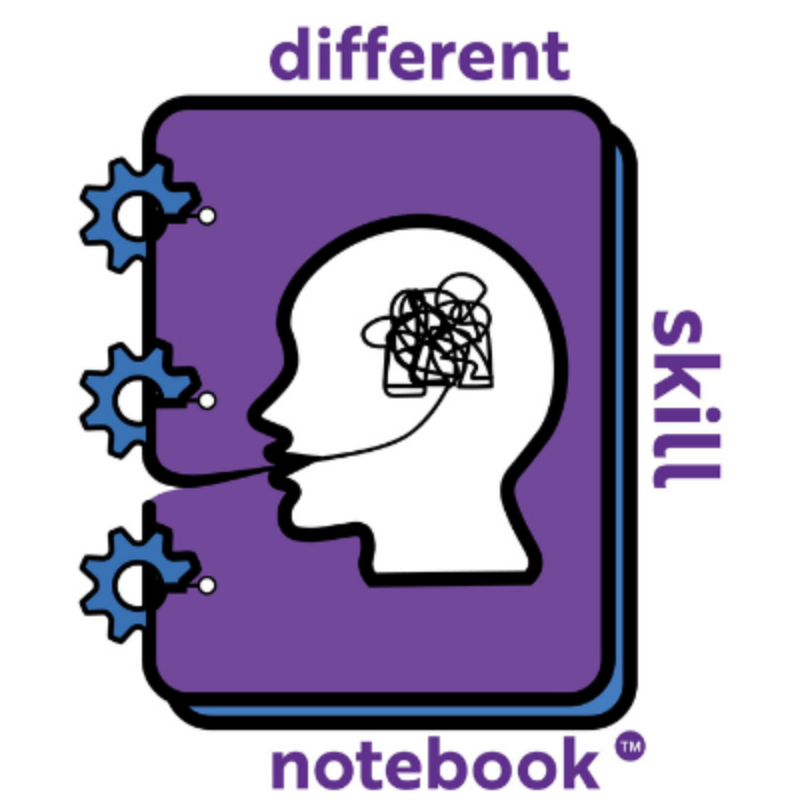
1.7K
Downloads
33
Episodes
The Social Mind Center presents the ”different skill notebook” a tool that provides strategies to build social-emotional skills resulting in social competency. Since March our world has experienced many changes with the COVID pandemic. Change is the new constant in our daily lives. Requiring us to be adaptable and adjust to the changes daily. The different skill notebook is a life curriculum for you to equip your child with the skills to communicate, connect, and build relationships for life. We want our children to have success beyond academics by acquiring skills to adapt, cope, self-manage and find purpose in life.
Episodes
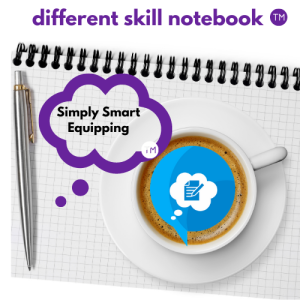
Tuesday Sep 29, 2020
Wonderfully made!
Tuesday Sep 29, 2020
Tuesday Sep 29, 2020
The Words to Express
Your Thoughts, Ideas and Feelings
Welcome to the different skill notebook an equipping tool teaching social-emotional learning. We will be focusing on the skill of building language. If I say to you please finish this statement I am ___________. How would you define yourself? However, you answered the question know that you are wonderfully made. Your child is wonderfully made. Say that to yourself I am wonderfully made. I wanted to start with this article a series of articles that focus on building language.
Language refers to the words we use and how we use them to share ideas and get what we want.
-
What words mean.
-
How to make new words.
-
How to put words together.
-
What we should say at different times.
Skill: Learning the words to describe oneself. The language to develop self-awareness.
Strategy: Providing your child with the words to describe their character traits to proactively build a positive self-image.
You want your child to have the words to describe themselves in a positive manner. The words that identify their character, personality, nature, temperament, qualities, and overall makeup. Within these character traits there are strengths and weaknesses. Even weaknesses can be positively identified as those qualities that everyone has and must manage, so they do not overpower strengths. It is just as important to identify our weaknesses as our strengths. We can not improve or change what we are unaware of. Knowing ourselves and understanding our needs are critical for healthy living.
When my children were in early elementary school this was an incredibly important skill to me. I did not want my children to be defined by others. I wanted them to be able to describe themselves and define themselves. I did not want them to build a self-image based on the perception of others. With both of my kids having learning differences and many challenges I never wanted them to think that they were just the sum of their weaknesses. I wanted them to know and understand the learning differences and learn to help themselves. Language is required for understanding.
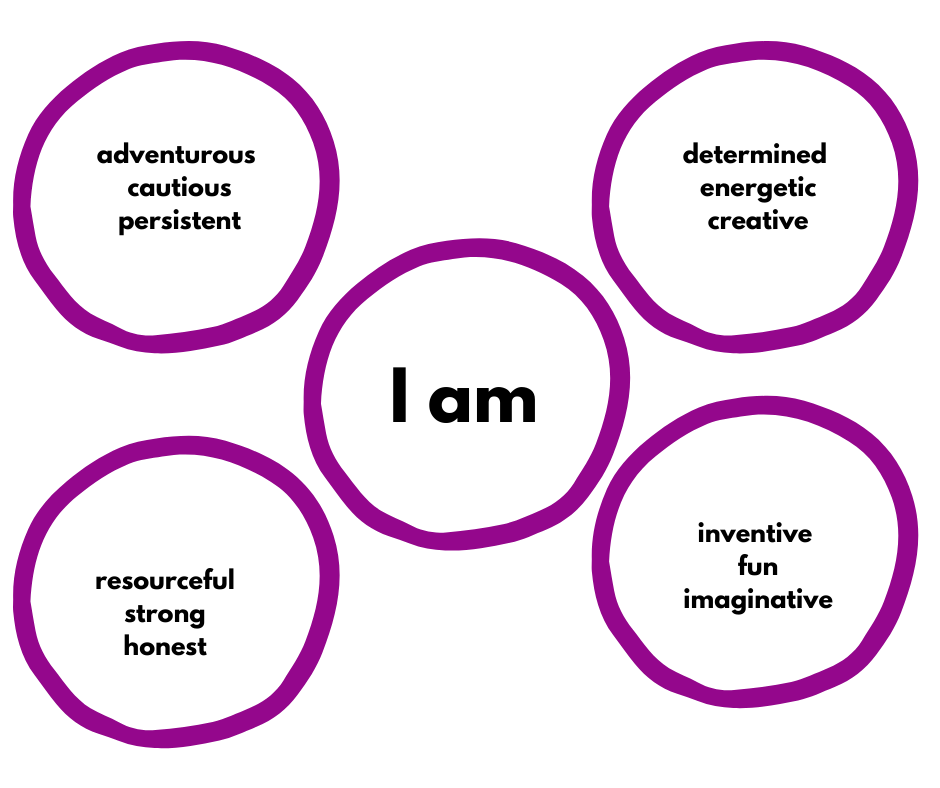
I wanted both of my kids to know that they were wonderfully and purposefully made. And that their different mind would be misunderstood but this misunderstanding was not going to determine the outcome of their future. They were going to have some barriers and hurdles to jump because the educational system is not equipped to manage neurodiversity YET.
A child should never be seen as a sum of their weaknesses.
In our home we are very transparent about our strengths and weaknesses. I always share my struggles with building healthy habits such as productivity, exercising, and healthy eating. Especially now that I have teens as they are exposed to such unwise and unhealthy lifestyles and misinformation in social media. We are frequently discussing healthy habits vs. unhealthy habits. The choices that lead us to learn, grow, and self-improve. We want our children to better themselves, have balance and lead healthy, productive lives. As parents and educators, we are facing the enormous amount of negative and misinformation that youth is exposed to on a daily basis whether from peers or technology. Providing them with an alternative narrative (language) to express themselves in an encouraging, empowering, and positive manner is paramount.
Build:
Language to build self-awareness is the starting is to be able to identify their character traits. Also identifying strengths, weaknesses and how they impact daily life. Intentional instruction to leverage their strengths to manage and minimize their weaknesses.
We want to encourage our children to identify what distinguishes them from others. What is their original makeup?
First, provide the words, definitions, and examples of their character traits. How would you and how would they describe themselves as an individual? There were various definitions for character traits but this was my favorite. We want to encourage our children to identify what distinguishes them from others. What is their original makeup?
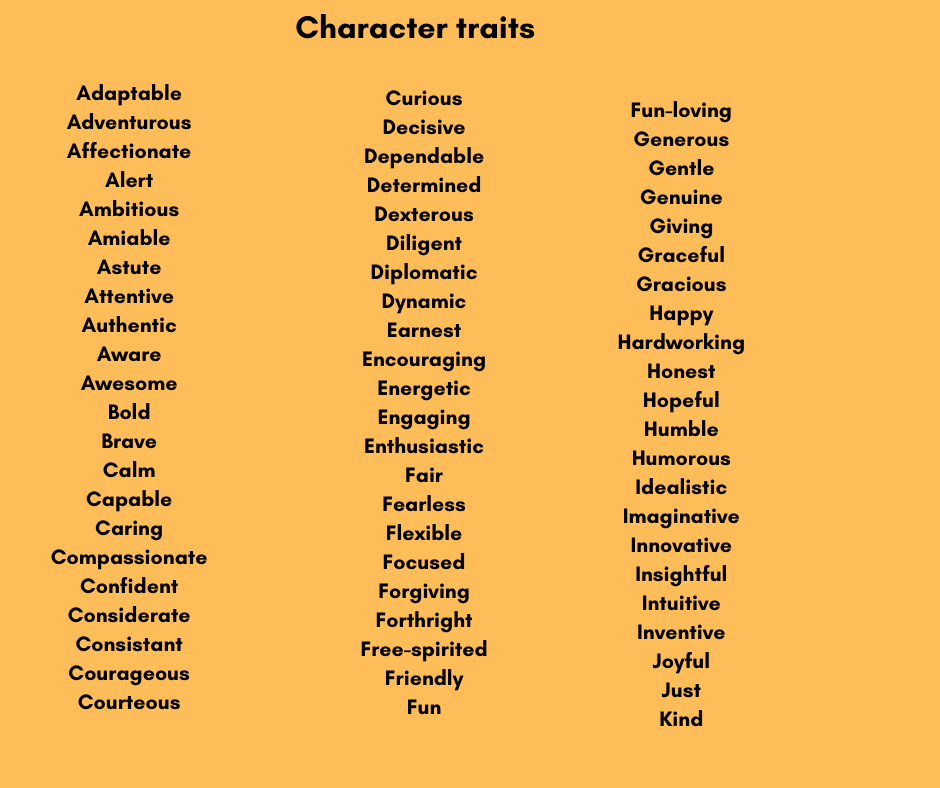
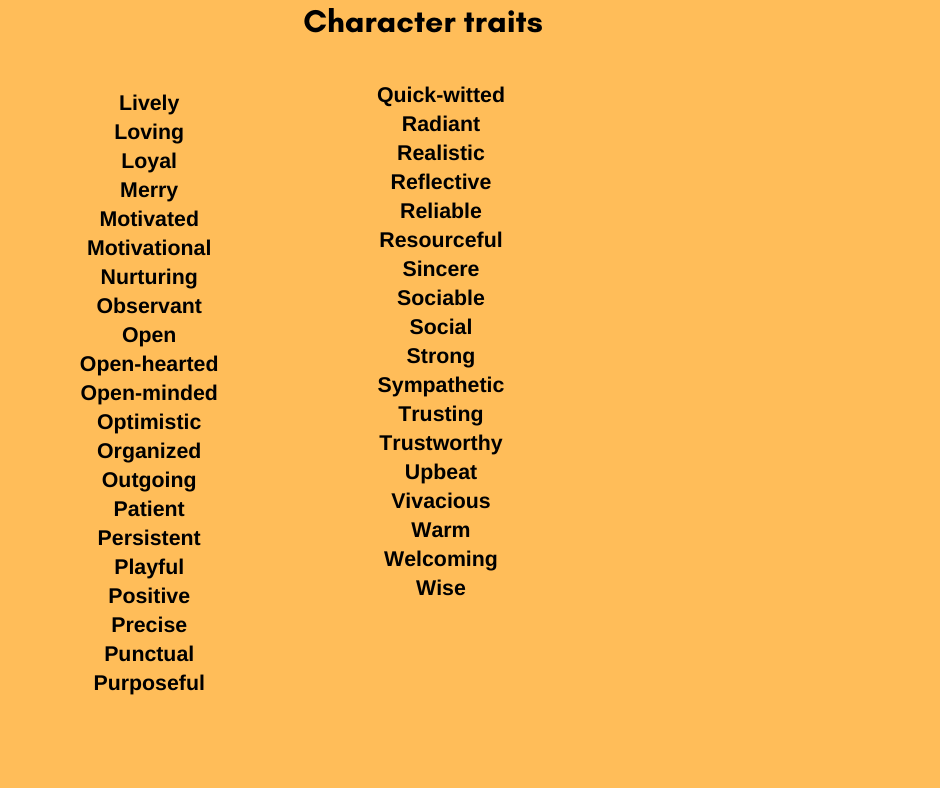
character trait: the strength and originality in a person’s nature.
The above list is one many that I found online when searching for character traits wording. I would lead this process by identifying the positive qualities. And leave the addressing the weaknesses when there is an understanding and acceptance of strengths. You may find that your child may have a poor self-image and in that case, we want to work on overcoming that perception. And investigating how they arrived at that perception. We will have a separate article to discuss presenting strengths and weaknesses in an encouraging manner.
What we believe about ourselves is so important. You want your child to have the words to build their story. The story you tell yourself drives your future. We are all originals and we need to help our children build their own brand because they are like no one else. Ana Anselma
Please visit our website www.socialmindcenter.com

No comments yet. Be the first to say something!